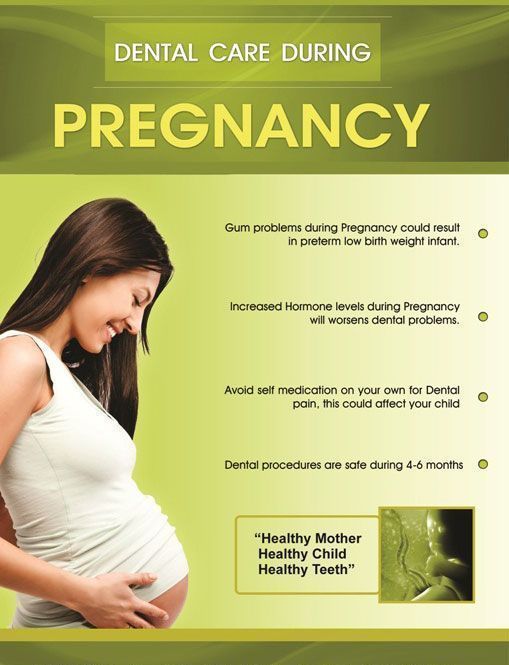Dental health (also called oral health) is the health of your mouth, teeth, and gums. It’s an important part of your overall health. And if you’re pregnant, it’s an important part of your prenatal care (medical care you get during pregnancy). During pregnancy, you could have a few dental issues. Highlands Ranch family dental takes your dental issues during pregnancy seriously.
Dental Issues During Pregnancy
Being pregnant can increase your risk of oral health problems, and these problems can affect your pregnancy. For example, some studies show a link between gum disease and premature birth. Premature birth is birth that happens too early, before 37 weeks of pregnancy. Premature babies may have more health problems at birth and later in life than babies born full-term.
Taking good care of your mouth, teeth, and gums during pregnancy can help you have a healthy pregnancy and a healthy baby.
What can you do to help prevent dental problems during pregnancy?
Here’s how you can help keep your teeth and gums healthy:
- Brush your teeth with fluoride toothpaste twice a day and floss once a day. Use a toothbrush with soft bristles. Regular brushing and flossing can remove plaque and help keep your teeth and gums healthy.
- If you can’t brush your teeth because of vomiting, use antacids or rinse your mouth with a mixture of 1 teaspoon baking soda in 1 cup of water. Rinsing can help reduce the amount of acid in your mouth. Antacids are medicines that help neutralize stomach acid. You can buy them over the counter without a prescription from your provider. But don’t take any medicine—even OTC medicine—without talking to your provider first.
- Visit your dentist for a regular dental checkup every 6 months (twice a year), even during pregnancy. At your checkup, tell your dentist that you’re pregnant.
- Eat healthy foods and limit sweets. Healthy foods include fruits and vegetables, lean meat, whole-grain bread and pasta and low-fat dairy products. Limit sweets and sugary foods and drink water instead of sugary drinks. Eating healthy foods helps give you and your growing baby important nutrients. Your baby’s teeth start developing between 3 and 6 months of pregnancy. Nutrients like calcium, protein, phosphorus, and vitamins A, C and D, help your baby’s teeth grow healthy.
- Don’t smoke.
How does pregnancy affect your dental health?
Changes in your body during pregnancy can affect your teeth and gums. For example:
- You have increased levels of certain hormones, like progesterone and estrogen, in your body during pregnancy. These can increase your risk for certain oral health problems.
- Your eating habits may change. You may eat more of certain foods during pregnancy than you did before you were pregnant. The kinds of food you eat can affect your dental health.
- You may brush and floss your teeth less than you did before you got pregnant. This may be because your gums are tender or you’re more tired than usual. For some women, brushing and flossing may cause nausea (feeling sick to your stomach).
These changes can increase your risk for certain dental problems during pregnancy, including:
Cavities (also called tooth decay or caries). These are small, damaged areas in the surface of your teeth. Being pregnant makes you more likely to have cavities. You can pass the bacteria that causes cavities to your baby during pregnancy and after birth. This can cause problems for your baby’s teeth later in life.
Gingivitis. Gingivitis is inflammation (redness and swelling) of the gums. If untreated, it can lead to more serious gum disease. Pregnancy hormones can increase your risk for gingivitis. Sixty to 75 percent of pregnant women have gingivitis. Signs and symptoms include:
- Redness and swelling
- Tenderness in the gums
- Bleeding of the gums, even when you brush your teeth gently
- Shiny gums
Loose teeth. High levels of the hormones progesterone and estrogen during pregnancy can temporarily loosen the tissues and bones that keep your teeth in place. This can make your teeth loose.
Periodontal disease (also called periodontitis or gum disease). If gingivitis is untreated, it can lead to periodontal disease. This causes serious infection in the gums and problems with the bones that support the teeth. Your teeth may get loose, and they may have to be extracted (pulled). Periodontitis can lead to bacteremia (bacteria in the bloodstream). This is a serious condition that needs immediate treatment. Smoking is a cause of severe gum disease.
Pregnancy tumors (also called pyogenic granuloma). These tumors are not cancer. They’re lumps that form on the gums, usually between teeth. Pregnancy tumors look red and raw, and they bleed easily. They can be caused by having too much plaque (a sticky film containing bacteria that forms on teeth). These tumors usually go away on their own after giving birth. In rare cases, they may need to be removed by your health care provider.
Tooth erosion. If you have vomiting from morning sickness, your teeth may be exposed to too much stomach acid. This acid can harm the enamel (the hard surface) of your teeth. Morning sickness (also called nausea and vomiting of pregnancy or NVP) is nausea and vomiting that happens during pregnancy, usually in the first few months.
Schedule Your Appointment Today
Give us a call today at 303-346-4495 or email us at [email protected] to schedule your first visit. We would love to work with you toward a better, brighter smile.
[contact-form-7 id=”6″ title=”Contact form 1″]



